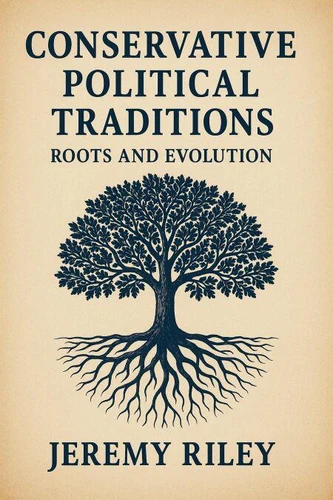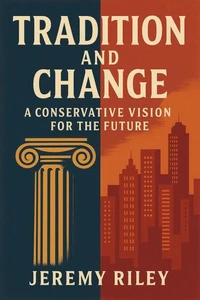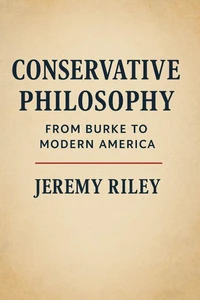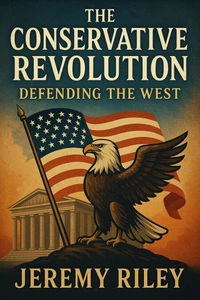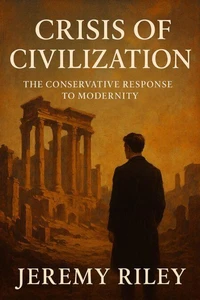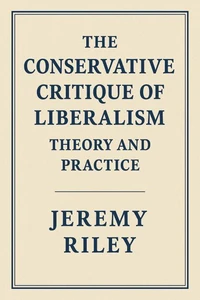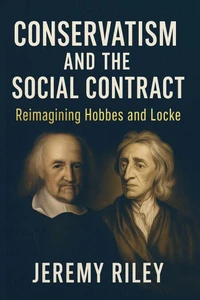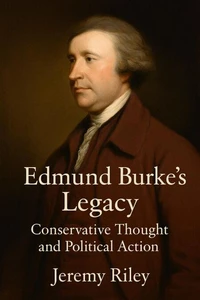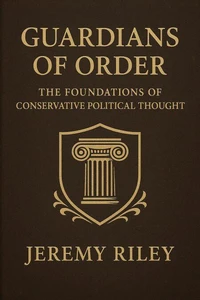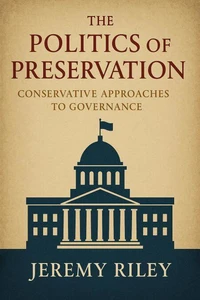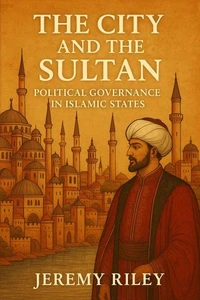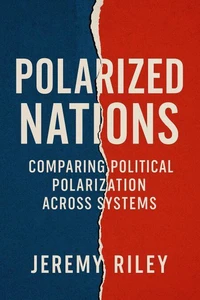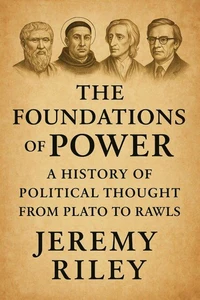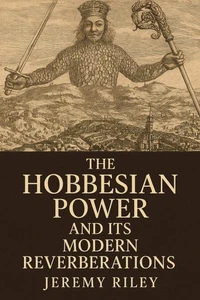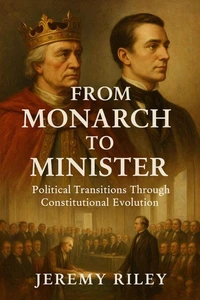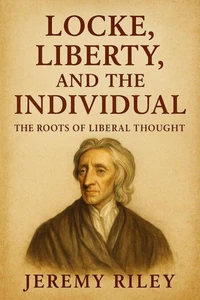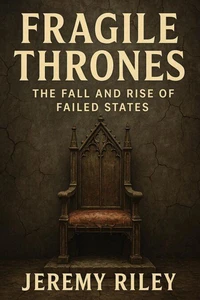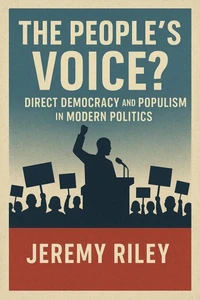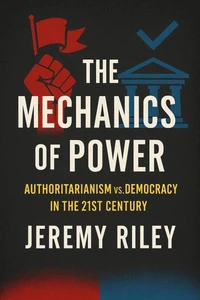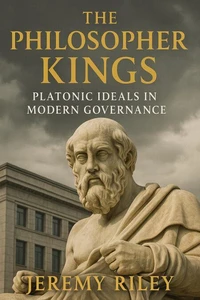Conservative Political Traditions: Roots and Evolution
Par :Formats :
Disponible dans votre compte client Decitre ou Furet du Nord dès validation de votre commande. Le format ePub est :
- Compatible avec une lecture sur My Vivlio (smartphone, tablette, ordinateur)
- Compatible avec une lecture sur liseuses Vivlio
- Pour les liseuses autres que Vivlio, vous devez utiliser le logiciel Adobe Digital Edition. Non compatible avec la lecture sur les liseuses Kindle, Remarkable et Sony
 , qui est-ce ?
, qui est-ce ?Notre partenaire de plateforme de lecture numérique où vous retrouverez l'ensemble de vos ebooks gratuitement
Pour en savoir plus sur nos ebooks, consultez notre aide en ligne ici
- FormatePub
- ISBN8230107255
- EAN9798230107255
- Date de parution21/04/2025
- Protection num.pas de protection
- Infos supplémentairesepub
- ÉditeurIndependently Published
Résumé
Conservative Political Traditions: Roots and Evolution by Jeremy Riley provides a comprehensive examination of the intellectual and political development of conservative thought from its origins to the present day. The book delves into the foundational principles of conservatism, tracing its roots through key historical moments, such as the rise of monarchies, the Enlightenment, and the reactions to revolutions that reshaped Europe.
Riley explores how conservatives have historically defended social order, national sovereignty, and traditional institutions against the forces of radical change, focusing on major thinkers like Edmund Burke, Joseph de Maistre, and Michael Oakeshott. Through detailed analysis, the book traces the evolution of conservative thought, examining how it has adapted to new challenges, such as the rise of socialism, liberalism, and globalization.
The book also investigates the relationship between conservatism and nationalism, as well as the movement's response to modern issues like climate change, technology, and the shifting dynamics of international politics. By highlighting the intersections of conservatism with economic thought, religion, and social values, Riley provides a nuanced understanding of how conservative traditions have shaped and been shaped by political, cultural, and social forces over time.
Riley explores how conservatives have historically defended social order, national sovereignty, and traditional institutions against the forces of radical change, focusing on major thinkers like Edmund Burke, Joseph de Maistre, and Michael Oakeshott. Through detailed analysis, the book traces the evolution of conservative thought, examining how it has adapted to new challenges, such as the rise of socialism, liberalism, and globalization.
The book also investigates the relationship between conservatism and nationalism, as well as the movement's response to modern issues like climate change, technology, and the shifting dynamics of international politics. By highlighting the intersections of conservatism with economic thought, religion, and social values, Riley provides a nuanced understanding of how conservative traditions have shaped and been shaped by political, cultural, and social forces over time.
Conservative Political Traditions: Roots and Evolution by Jeremy Riley provides a comprehensive examination of the intellectual and political development of conservative thought from its origins to the present day. The book delves into the foundational principles of conservatism, tracing its roots through key historical moments, such as the rise of monarchies, the Enlightenment, and the reactions to revolutions that reshaped Europe.
Riley explores how conservatives have historically defended social order, national sovereignty, and traditional institutions against the forces of radical change, focusing on major thinkers like Edmund Burke, Joseph de Maistre, and Michael Oakeshott. Through detailed analysis, the book traces the evolution of conservative thought, examining how it has adapted to new challenges, such as the rise of socialism, liberalism, and globalization.
The book also investigates the relationship between conservatism and nationalism, as well as the movement's response to modern issues like climate change, technology, and the shifting dynamics of international politics. By highlighting the intersections of conservatism with economic thought, religion, and social values, Riley provides a nuanced understanding of how conservative traditions have shaped and been shaped by political, cultural, and social forces over time.
Riley explores how conservatives have historically defended social order, national sovereignty, and traditional institutions against the forces of radical change, focusing on major thinkers like Edmund Burke, Joseph de Maistre, and Michael Oakeshott. Through detailed analysis, the book traces the evolution of conservative thought, examining how it has adapted to new challenges, such as the rise of socialism, liberalism, and globalization.
The book also investigates the relationship between conservatism and nationalism, as well as the movement's response to modern issues like climate change, technology, and the shifting dynamics of international politics. By highlighting the intersections of conservatism with economic thought, religion, and social values, Riley provides a nuanced understanding of how conservative traditions have shaped and been shaped by political, cultural, and social forces over time.

